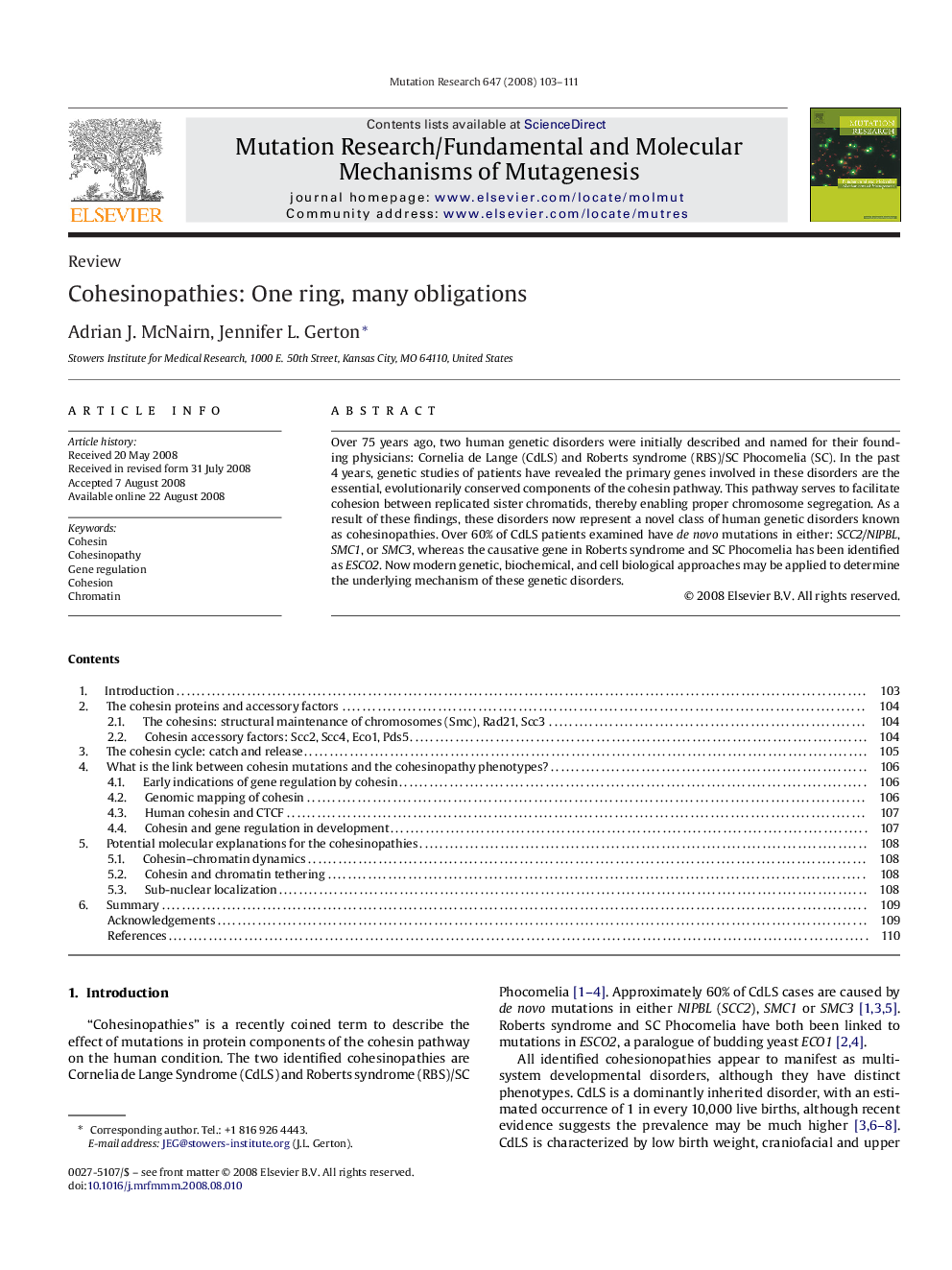| Article ID | Journal | Published Year | Pages | File Type |
|---|---|---|---|---|
| 2147117 | Mutation Research/Fundamental and Molecular Mechanisms of Mutagenesis | 2008 | 9 Pages |
Over 75 years ago, two human genetic disorders were initially described and named for their founding physicians: Cornelia de Lange (CdLS) and Roberts syndrome (RBS)/SC Phocomelia (SC). In the past 4 years, genetic studies of patients have revealed the primary genes involved in these disorders are the essential, evolutionarily conserved components of the cohesin pathway. This pathway serves to facilitate cohesion between replicated sister chromatids, thereby enabling proper chromosome segregation. As a result of these findings, these disorders now represent a novel class of human genetic disorders known as cohesinopathies. Over 60% of CdLS patients examined have de novo mutations in either: SCC2/NIPBL, SMC1, or SMC3, whereas the causative gene in Roberts syndrome and SC Phocomelia has been identified as ESCO2. Now modern genetic, biochemical, and cell biological approaches may be applied to determine the underlying mechanism of these genetic disorders.
